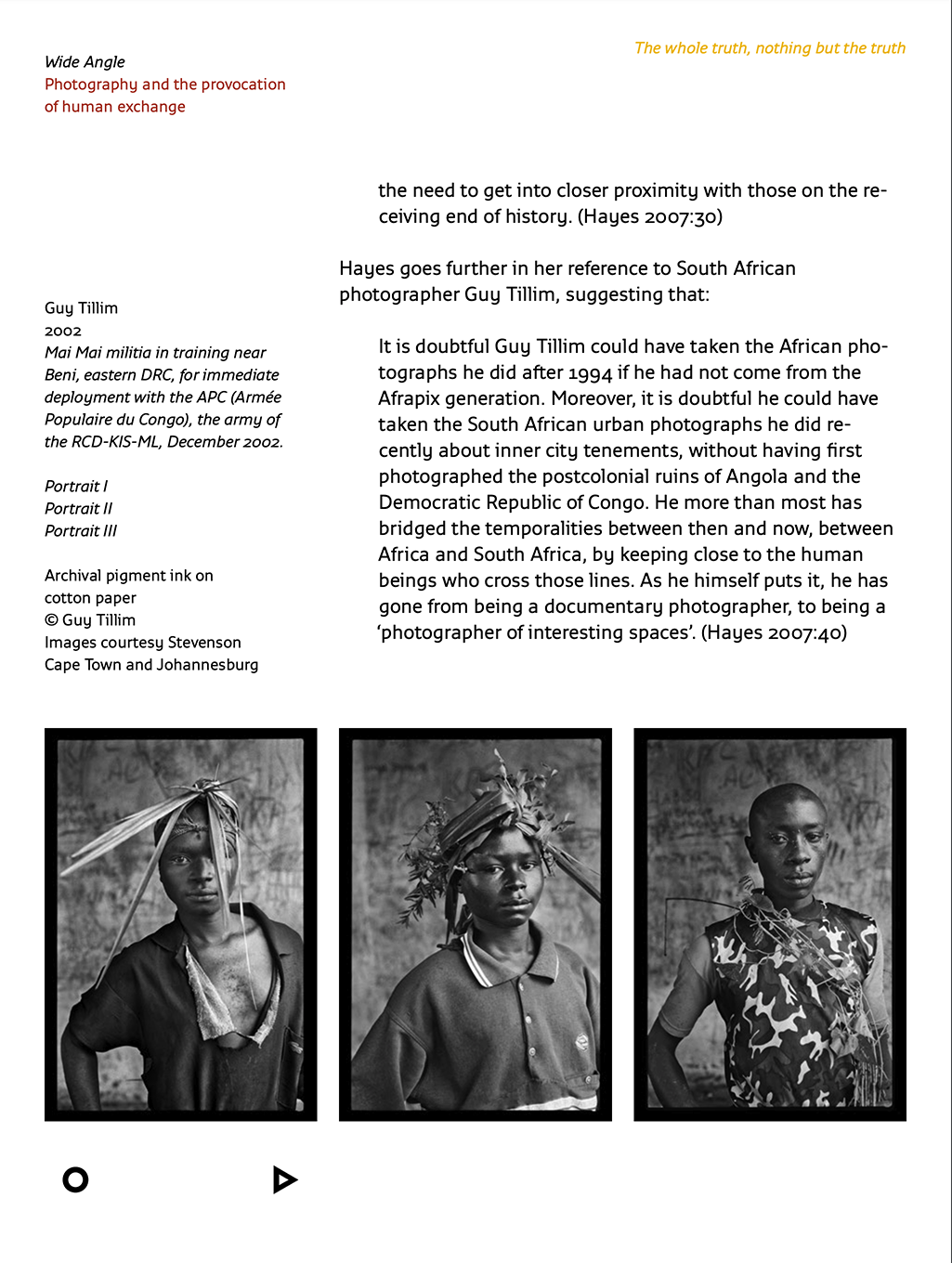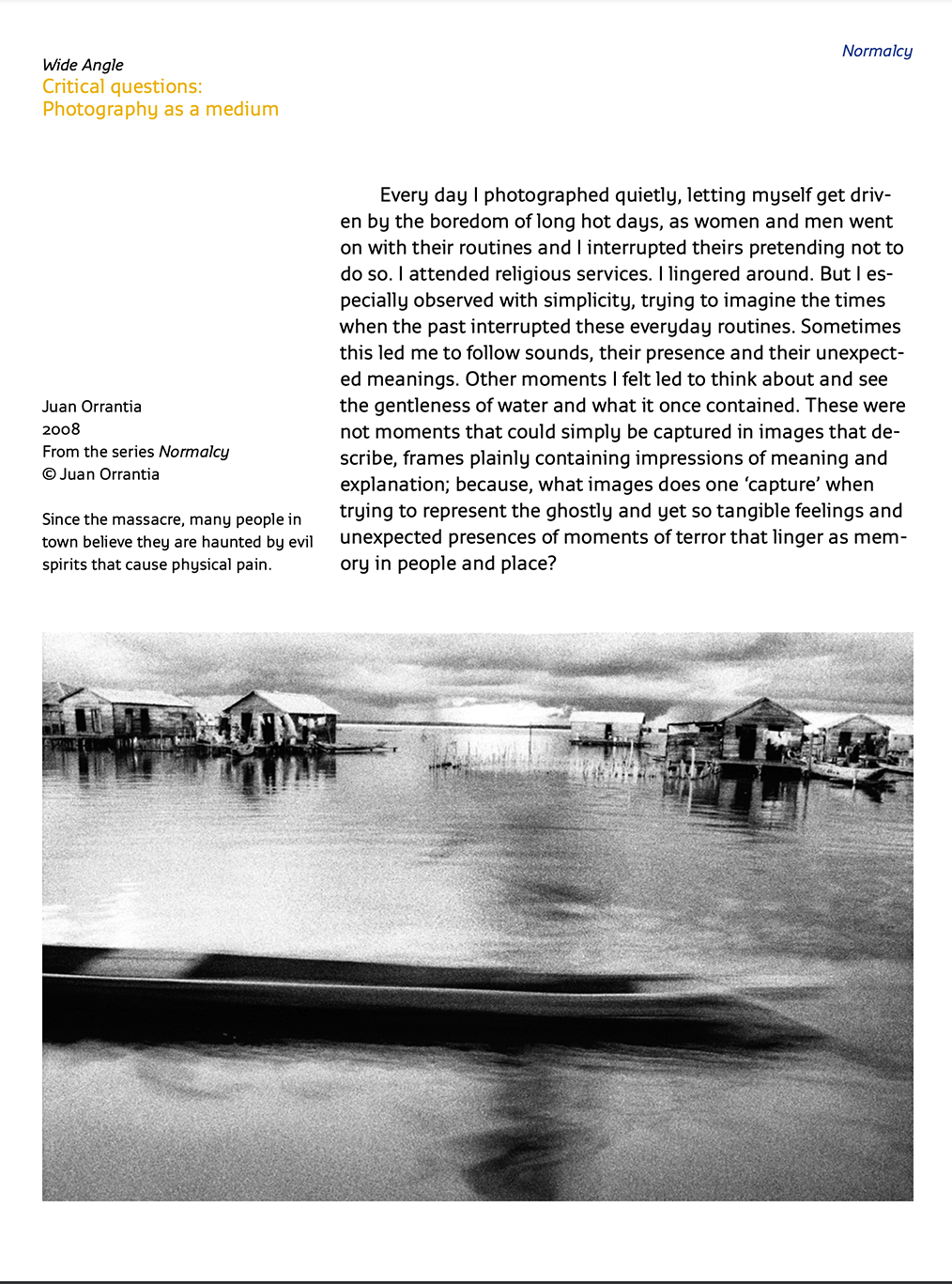Wide Angle (2015)
Wide Angle: Photography as Participatory Practice is a wide-ranging collection of essays in response to the subject of participatory photographic practice. It was published as an e-book by Fourthwall Books, Johannesburg and can be freely downloaded here: https://fourthwallbooks.com/wp-content/uploads/2015/08/Wide-Angle_Final.pdf
Acknowledging that the political and ethical status of photography is never uncomplicated terrain, contributors to this volume engage with questions about power relations in participatory practice; the nature of negotiations between a project and its funders or partners; the aesthetic dimensions of a socially engaged practice; as well as intentionality, negotiated reality and ‘utopian’ pursuits.
Wide Angle is in many ways a provocation: to rethink and critically expand the definition, uses and possible meanings of participatory photographic practice, especially in relation to professional practice, teaching, funding and theoretical work on the subject.
-
From the Introduction to the book by editors Terry Kurgan and Tracy Murinik:
In 2011, the Goethe-Institut Johannesburg, in collaboration with the Wits School of Arts and the Market Photo Workshop, initiated the development of Wide Angle: Photography as Public Practice, an innovative multi-platform project that reflected upon photography as a participatory, public practice, and which resulted in a colloquium in Johannesburg in March of that year.
The forum brought together a thought-provoking group of local and international practitioners and theoreticians, who spent three days together presenting photographic projects produced on different continents in a range of social, physical and political contexts and conditions. These were introduced around the broadly defined themes of research, advocacy, art practice and process, dialogue and social exchange. Artists and theorists showcased reciprocal and negotiated methods of creative interaction and interrogated amongst other things: the aesthetics, morality, ethics and power relations of participatory photographic practice, the relationship between social engagement and creative practice, and between politics and poetry. Questions were asked about the reading and meaning of photographs produced in these ways.
As cultural theorist Achille Mbembe has said in the context of the development of the arts in South Africa: “We need to keep reinventing the relationship between community and culture. Public art still holds the possibility of providing the necessary imaginary resources our cities need as they try to foster between citizens the sort of convivial and reciprocal relations without which there is neither a vibrant public sphere nor civic life as such” (Mbembe 2009). This is the environment in which this publication explores the potential of photography and photographic projects to be used as a way to participate in the world; where ‘audience’ becomes ‘actor’, and experience and social interaction take precedence over documentary and observation.
The Wide Angle curatorial team has since worked towards this e-book that takes many of the issues raised in the colloquium and its subsequent discussions further. The contributions included here come at these questions from a rich variety of angles and positions – in relation to participatory photographic projects, and to the medium of photography itself. The political and ethical and ‘meaning’ status of photography is never uncomplicated terrain, and contributions in this publication critically engage with participatory practice and some of the subtler issues involve. These include power relations, ethics and the means of exchange that have to be negotiated between project leaders and project participants; a collateral exchange that is the nature of negotiations between a project and its funders or partners; the aesthetic dimensions of a socially engaged practice; and issues of intentionality, negotiated reality and ‘utopian’ pursuits.
Wide Angle: Photography as Public Practice sets out to provide the reader with a range of insights, commentaries, conversations and responses to issues raised on the subject of participatory practice and photography. But it also seeks to provoke. As Hans Ulrich Obrist offers in his Preface to Markus Miessen and Shumon Basar’s (2006) book, Did Someone Say Participate?, “‘Participation’ is a word that has been used a lot lately. What does this word mean today after it has been turned into a cliché so many times? … At the beginning, participation was very ‘authentic’ … Then it became politically instrumentalized and often degraded.” Our intention in this publication is to prompt a widening angle on the notion of participation – to rethink and critically expand its definition, uses and possible meanings – and to provoke these thoughts in practitioners, novices, teachers, funders and theorists working and thinking around the subject at all levels.
References Mbembe, A. 2009. African Contemporary Art: Negotiating the Terms of Recognition. Accessed at: http://jhbwtc.blogspot.com/2009/09/african-contemporary-art-negotiating.html
Obrist, H. U. 2006. In Miessen, M and Basar, S (eds). Did Someone Say Participate? MIT Press: Cambridge.





